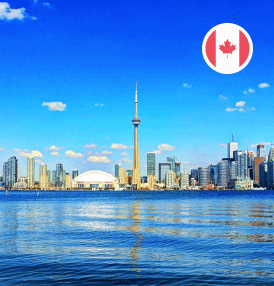Study in Australia: A Destination to Word-Class Education
Australia is famous for offering a great environment and high living standards. At the forefront of technological advancements and innovations, to study in Australia means that student get the top-class advantage of impressive resources. Along with that, Australia also has large number of impeccable institutions for Management, Commerce and Accounting, Arts and Humanities, Medical Science, Agriculture, Engineering and Technology, Life Sciences, Social Sciences, Physical Sciences, and other courses with Scholarships on offer.
Facilities for teaching, training and research are world-class in terms of state-of-the-art laboratories and classrooms, outstanding libraries and modern technology. Institutions deliver practical and career-orientated training so graduates can be confident that they have the skills expected by employers. Academic staff is recruited from around the world and often are leading experts in their field. Australian teachers are experienced in supervising both domestic and international students from a variety of different countries.
International students in Australia (including their parents) enjoy a very high level of service and financial protection. Quality is assured by ESOS 2000 and national code to ensure fair practice standards are met. Australia is an international leader in safeguards and support services for international students with specialist student services being well resourced and quality assured.
This makes Australia rather popular amongst students. With numerous top institutions in Australia, the popularity of Australia as a top study destination has been increasing day by day.
Why Study in Australia from Nepal?
There are TEN important reasons that attract international students to Australia:
- Seamless Quality Education Delivery.
- Great potential for employment opportunities after course completion.
- Courses taught in English.
- Information and Communication Technology in Institutions for student to keep updated on progress.
- New streamlined visa application system making chances of application success even higher.
- Courses are relevant industry accredited.
- Opportunity for Scholarships for academic excellence.
- Course integrated Paid Internships.
- Opportunity to test skills during Post Study Work Rights.
- Students Education and Tuition Fee Protected by Education Services for Overseas Students (ESOS) Act.










